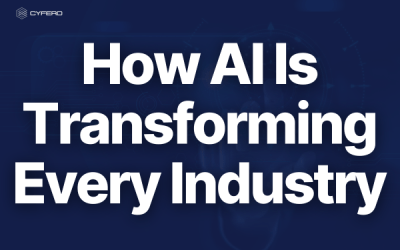The State of Social Housing: The Shocking Statistics Revealed in the 2022-23 Ombudsman Review
The Housing Ombudsman’s annual complaints review for 2022-23 has sent shockwaves through the social housing sector revealing a staggering 323% increase in severe maladministration findings, indicating significant issues in housing associations’ management and communication with tenants. This surge in complaints paints a concerning picture of the state of social housing and tenant satisfaction in the UK.
The most alarming revelation from the review was the surge in severe maladministration findings. These increased from 31 to 131 within the past year, indicating a growing failure on the part of housing associations to adequately address tenant concerns. Furthermore, maladministration findings increased by 40%, reaching a total of 2,430 cases. This trend is indicative of substantial dissatisfaction among tenants with their housing providers’ performance.
The report also highlighted a drop in “no maladministration findings” by 20%, indicating a significant lack of effective communication and problem-solving between housing associations and tenants. A whopping 112 severe maladministration findings were linked to housing providers managing more than 10,000 homes. This implies that larger housing associations, often responsible for a more substantial number of residents, may be struggling with more complex communication and management issues.
The report underscores the urgency for housing associations to enhance their ability to address tenant complaints effectively and efficiently. It is imperative that housing providers take immediate action to bridge the gap between tenant expectations and the services they provide. While the report highlights the challenges and shortcomings in the social housing sector, it also opens the door to exploring the potential of AI technologies in revolutionizing the way social housing providers operate.
In a sector where issues like severe maladministration and inefficient complaint handling are persistent problems, how can we effectively address these challenges? Is there a transformative solution that can bridge the gap between tenant expectations and the services provided?
Integrating AI can be a transformative step toward addressing these concerns. AI can offer data-driven insights, early warning systems, and automation that not only streamline operations but also improve the overall quality of service. This presents an opportunity for housing providers to leverage technology as a tool for meaningful change and bridge the gap between tenant expectations and the services they provide.
The adoption of AI technology presents a promising path forward in mitigating severe maladministration in social housing. It can significantly improve the sector’s operations and overall service quality. Here’s how AI can play a pivotal role:
Identifying patterns and trends in complaints data: Cyferd can be used to store extensive datasets encompassing tenant complaints, maintenance records, and financial data. Using this data Cyferd can help create a clear visual using data-driven metrics to identify patterns and trends that may not be immediately visible. This information can be used to target resources and interventions more effectively.
Automating complaint handling tasks: Cyferd can help automate many of the tasks involved in complaint handling, such as routing complaints to the appropriate team, tracking progress, and generating reports. This can free up staff to focus on more complex cases and improve the overall efficiency of the complaints-handling process.
Prevent future maladministration: Cyferd can be used to identify tenants who are at risk of making a complaint by viewing unsolved complaints or maintenance requests, or used to identify landlords who are at risk of falling behind on their maintenance obligations. This can help social landlords to take preventative action and avoid problems before they occur.
While the Housing Ombudsman’s annual review reveals distressing statistics about the state of social housing in the UK, the integration of AI technology offers a promising avenue for improvement. By enhancing complaint handling, predicting issues, and automating tasks, social housing services can become more responsive and efficient. It is essential for housing providers to embrace these technological innovations to ensure residents receive the quality and care they deserve. As these advancements continue, there is hope for a future where severe maladministration is significantly reduced, and residents’ needs are met with efficiency and excellence.
How to Fix a Fragmented Tech Stack and Cut Costs
How AI Is Transforming Every Industry in 2025
How to Build AI-Powered Apps That Guide Better Decisions
Case Study: TesTex Transforms Operations with Tick9 & Cyferd
How Cyferd Made Voult Possible – And Why That Matters for Insurance
Why tick9 Partners with Cyferd to Accelerate Results
Optimize Your Tech Stack for Maximum Business ROI
Reimagining Work with AI and Operational Knowledge
One scoop of vanilla please!
ERP Failure: Why Most Projects Fall Short — And How to Succeed
Cyferd in the Press
As seen in
Let’s Get Started
Ready to Drive Transformation?
New York
Americas Tower
1177 6th Avenue
5th Floor
New York
NY 10036
London
2nd Floor,
Berkeley Square House,
Berkeley Square,
London W1J 6BD




















